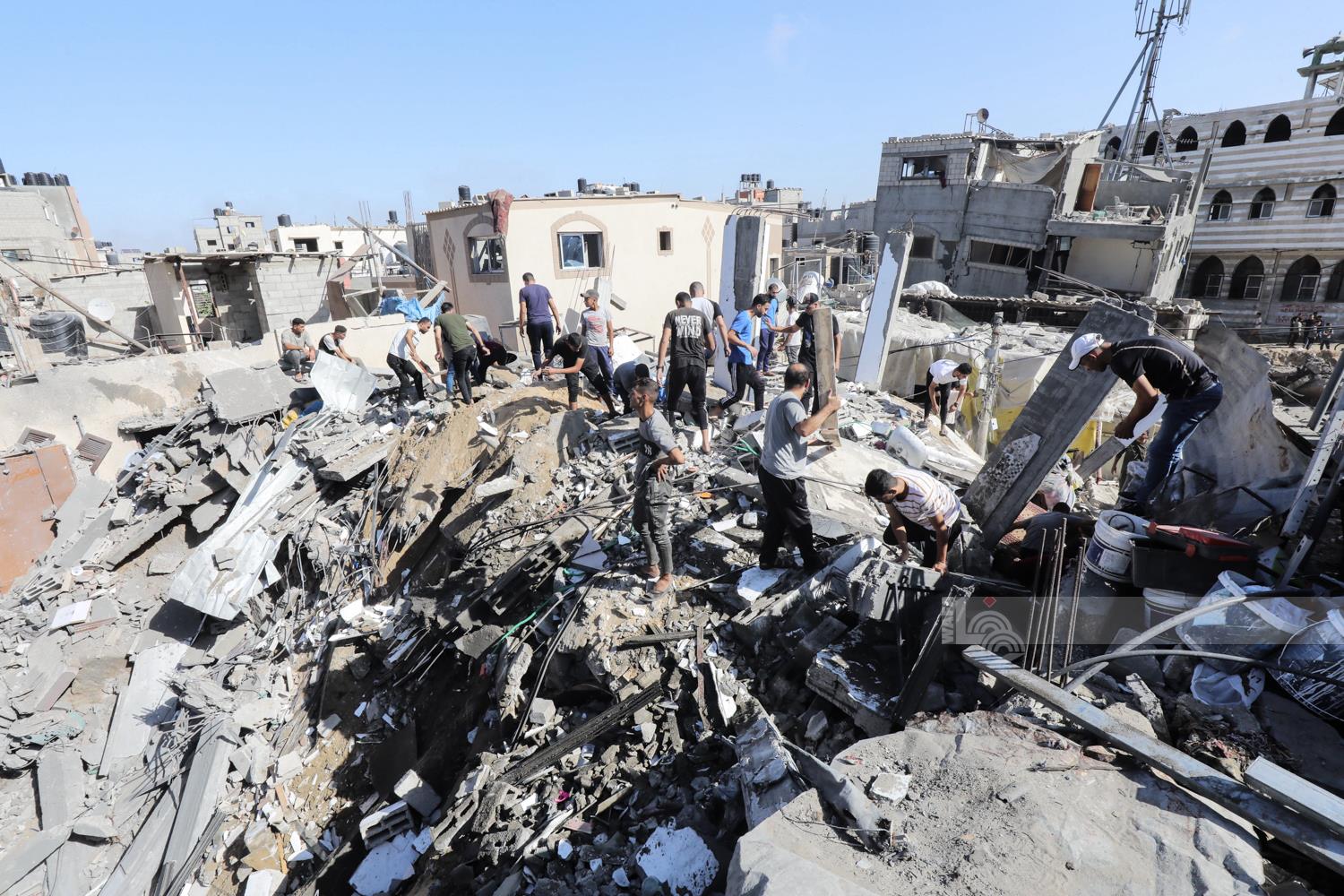The temporary truce has seen the release of 96 captives from Gaza and the release of 210 Palestinian women and children from Israeli prisons, according to a Doha News tally.
The Palestinian and Israeli sides have agreed to extend the temporary truce in Gaza for one additional day on Thursday morning, Qatar’s Foreign Ministry Spokesperson Majed Al Ansari told Qatar News Agency (QNA).
In his remarks to QNA, almost an hour after the initial truce expired at 7:00 AM Gaza time, Al Ansari said the extension came as part of Qatar’s joint mediation with Egypt and the United States.
The Qatari official said the two sides agreed on the extension “under the same previous conditions,” which include a ceasefire and the entry of humanitarian aid.
“The Official Spokesperson for the Ministry of Foreign Affairs affirmed that intensive efforts continue with the aim of reaching a permanent ceasefire in Gaza Strip,” QNA reported, citing Al Ansari.
The Qatar and Egypt mediated humanitarian pause initially came into effect on Friday 7:00 AM Gaza local time on November 24 for four days, before it was extended for two additional days on Monday.
The initial agreement stipulated the release of more than 50 Israeli and foreign captives from Hamas in Gaza in exchange for the release of 150 Palestinian women and children from Israeli prisons.
By Wednesday, the sixth day of the truce, Hamas released 102 captives in Gaza whereas Israel released 210 Palestinian women and children from its prisons, according to a Doha News tally based on the daily announcements and releases by Qatar’s Foreign Ministry.
The deal also entailed the entry of additional aid trucks into the besieged enclave, including fuel shipments as Gaza’s 2.2 million population continues to grapple with a dire humanitarian situation worsened by the complete Israeli siege and deadly bombardment.
The World Food Programme’s (WFP) Director for the Middle East Corinne Fleischer warned on Tuesday that “there is a risk of famine and starvation” in Gaza.
“Thanks to the pause, our teams have been in action on the ground, going into areas we haven’t reached for a long time. What we see is catastrophic. There’s a risk of famine and starvation on our watch and to prevent it, we need to be able to bring in food at scale and distribute it safely,” Fleischer said in a statement on Tuesday.
“Six days is simply not enough to provide all the assistance needed. The people of Gaza have to eat every day, not just for six days,” she added.
The WFP previously sounded the alarm on the widespread hunger in Gaza on November 16 and said the food infrastructure “is no longer functional” as local markets completely shut down.
“The small quantities of food that can be found are being sold at alarmingly inflated prices and are of little use without the ability to cook, forcing some to survive on one meal a day. For the lucky, that includes more than solely canned food, though some people have resorted to consuming raw onions and uncooked eggplants,” the WFP said.
The Israeli genocide on Gaza started on October 7 in what the occupying state said was a response to the surprise Hamas operation, known as “Operation Al Aqsa Flood,” in which the armed group took 240 captives
Qatar, which hosts a Hamas political office, has been at the forefront of de-escalation efforts in Gaza. In almost every update on negotiations, Qatar indicates that it is ultimately aiming to achieve a permanent ceasefire.
Israeli occupation forces have killed at least 20,360 Palestinians, including 8,241 children, since the start of the genocide, according to figures by Euro-Med. Over 1.7 million have been displaced.
The figures by the NGO are being widely cited as Gaza’s collapsed health sector stopped keeping track of the total toll after the ground invasion of Al-Shifa Hospital on November 18.
Speaking at the UN headquarters in New York on Wednesday, Qatar’s Prime Minister Sheikh Mohammed bin Abdulrahman Al-Thani said that Palestinians in Gaza witnessed “seven disastrous weeks.”
“Seven disastrous weeks have passed for the brotherly Palestinian people in the Gaza Strip,” Sheikh Mohammed, who is also Qatar’s foreign minister, said.
The top Qatari official further called on the UN Security Council to apply international law “according to one criteria without discrimination.”
“We would like to see a fair application of international law according to one criteria, without discrimination or preference between the parties. The silence of the international community and the double standards with which it treats the atrocities, massacres and crimes committed by the Israeli occupation against civilians and civilian structures, relief and humanitarian facilities remains a disgrace to all of humanity,” he added.







